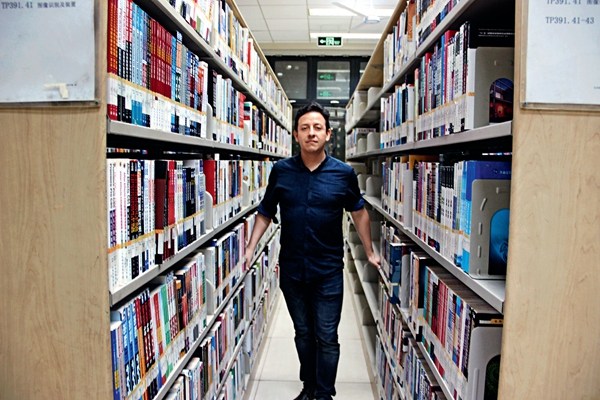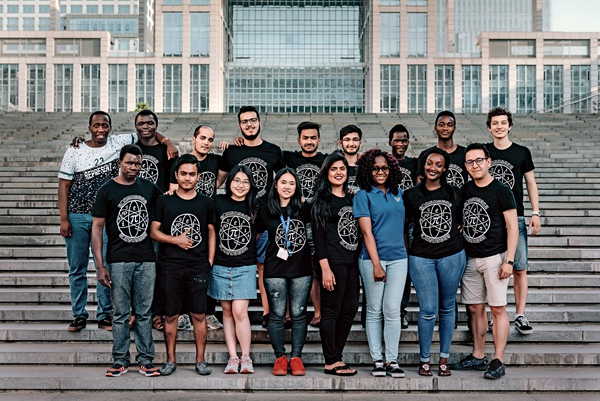By MARCO ANTONIO CABERO ZABALAGA
LIVING abroad changes people. I can say that after living in

The author in the library at
You may be wondering why I accepted this challenge. I think that knowing the world is enriching, not only because it brings culture to people, it also opens their minds, strengthens their social skills, and helps them to be more organized and to plan better.
After completing the 12 months of this satellite project, I returned to my country and continued to teach at a university. However, for some reason, the memories of
After applying and getting accepted by
Exploring Science at
From one day to the next, I conducted more and more experiments in the spin-lab using modern equipment. I also experienced incredible moments during the research process. For example, I met different personalities from the academic field, such as Albert Fert (the 2007 Nobel Prize winner in physics) and Alan Heeger (the 2000 Nobel Prize laureate in chemistry), scientists who visited our laboratories at least once every semester.
I was assigned to work with two laboratories, the first of spintronics, led by Professor Zhao Weisheng, and the second of organic photovoltaic materials, directed by Professor Sun Yanming. Because they are very different areas, my mission was to integrate them using the experimental and theoretical parts of each. The research culminated in three scientific papers, two of which allowed me to participate in the International Congress of Astronautics held two years ago in
While the technical, scientific experience has been incredible, I must confess that the laboratory work was not a piece of cake. I think the biggest challenge for me was to demonstrate that, as a South American, I was also able to make valuable contributions to science. For this reason, I spent long hours in the laboratory and in the office that had been assigned to me, corroborating several times the progress I had reported, so that there was no doubt that the observed phenomenon was real.

Science students from different countries.
Scientific research is rigorous and intense, I had to resume functions right after lunch, stay until late at night, or even work during the weekends, all with the aim of achieving the expected results. Thanks to my previous experience as an integrator at Siemens, Allen Bradley, and Endress + Hauser, it was not difficult to adapt quickly to the fast pace of work.
I worked in a very collaborative environment. While there are differences in the “how” and the “way” of doing things, my classes of Chinese culture made me realize that, unlike locals, foreigners are more direct to go from point A to point B. However, the excellent results can be attributed to exceptional communication.
I also believe that the scientific world has to be flexible, in the sense that new ideas and new ways of doing things must be accepted. It is worth mentioning that sometimes roads that do not seem to be correct or that do not follow traditional methods can lead to something more significant, for example, the discovery of Vaseline, Bakelite, Teflon, or Velcro. Perseverance, optimism, communication, and hard work are qualities that I consider not only essential to obtaining good scientific results, but also help in many other areas, such as when different cultures intend to fulfill a common goal.
Prospects for the Future
Every day I see more start-ups, more publications on WeChat about artificial intelligence, more drones in the university flying over the Beihang Stadium, and more robots on the streets.
I think there are people with the desire to improve every day, to organize and plan the work well, and optimistic enough to face life with joy, tenacity, and passion. Being far from home, life takes on another meaning. Most people find themselves, and their path doesn’t belong to just a single place.
My expectations and opinions about the future, of course, have changed, perhaps because of the people I met or because I opened my mind more. In spite of this, what is clear to me is that I want to spend the rest of my life in the field of science. After these years of research, I realized that it does not take much to be happy and that it is possible to be happy in
Coming to
MARCO ANTONIO CABERO ZABALAGA is a Bolivian professor and researcher in